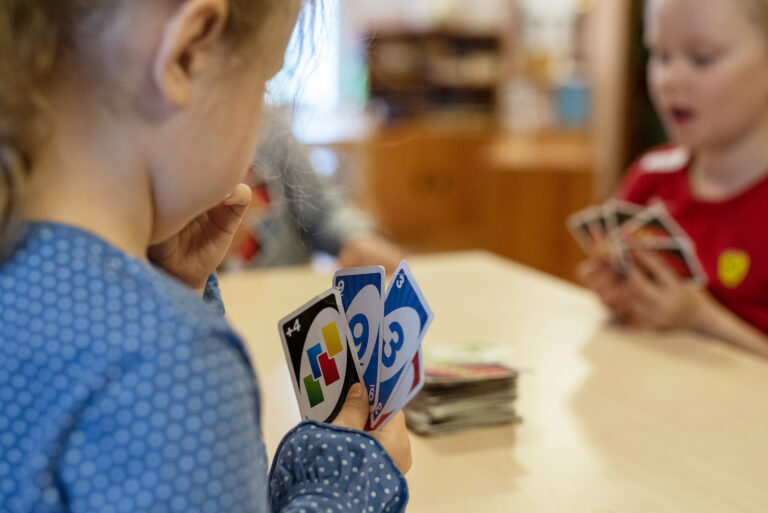ENGAGE intervention

Summary
Phenomena
Behavioural problems, emotions and emotional regulation, parenting skills and knowledge, and neuropsychiatric challenges
Introduction
The ENGAGE intervention has been developed for the prevention and treatment of difficulties in self-regulation and executive function among children below school age. At the core of the intervention are shared sessions of play, where parents are guided to support the child’s executive function skills through positive interaction. The ENGAGE intervention is intended for children aged three to six who have challenges related to hyperactivity, inattention and behavioural regulation. The group intervention comprises six meetings with the parents and six meetings with the children over an eight-week period, as well as two telephone or video conversations with the parents. Challenges in self-regulation and executive function are among the most common reasons for seeking support for a child’s development. For a child below school age, the challenges may manifest in the form of hyperactivity, difficulties with waiting and listening to instructions, and deficiencies in emotional regulation in exciting or frustrating situations, for example. Early self-regulation has been found to have a strong connection to executive function and psychological wellbeing that extends well into adulthood. In childhood, the development of executive function is strongly shaped through daily activities and interaction. In guided practice, the child can be supported and encouraged so that they dare to try things even when they are difficult, thereby strengthening their nascent self-regulation and executive function skills.
Objective and research question
This systematic literature review assesses the effectiveness of the ENGAGE intervention on the basis of research literature. The review answers the following question: Does the ENGAGE intervention have evidence-based effectiveness, applicable to Finland, in the prevention and treatment of difficulties in self-regulation and executive function among children below school age?
Data and methods
This study used the Population, Concept and Context (PCC) strategy to search for literature, which is a typical strategy in exploratory literature reviews. The search targeted the following question: What research has been done on the ENGAGE intervention? The following keywords were used: P = children and parents, C = Leikitään ja keskitytään -menetelmä (the English equivalents) and concepts related to executive function and play-based interventions. Context was omitted to avoid an excessive restriction of the results of the search. The primary area of interest in the search was effectiveness studies carried out on the method, although studies carried out by using different frameworks were also included. A systematic search was carried out for the following six intervention databases: MEDLINE, APA PsycInfo, CINAHL, ERIC, Web of Science and Scopus. In addition, a search for publications in Finnish was performed via the Finna.fi service.
Results
Based on the literature search, three effectiveness studies were selected for a systematic review. Two studies that affected the assessment were conducted in New Zealand on the ENGAGE intervention, on the basis of which the Finnish Leikitään ja keskitytään perheille intervention has been developed. In addition to the studies conducted in New Zealand, a Finnish effectiveness study on the LeKe perheille intervention was assessed. The quality of the effectiveness studies was good. The intervention has been shown to have positive effects on self-regulation and executive function at home. Based on the assessment, the intervention has a robust theoretical foundation and description. The intervention is comprehensively described in the instructor’s manual, and implementation support offered by the intervention is fulfilled in six out of seven areas. There are good opportunities for the successful implementation of the ENGAGE intervention.
Methodology evaluation
The methodology evaluation score for the Finnish Strongest Families Parent Training Programme is 5/5, which means that there is strong evidence of the intervention’s effectiveness in the Finnish context. There is evidence of the effectiveness of using the intervention for children aged three to six who have difficulties with self-regulation and executive function.